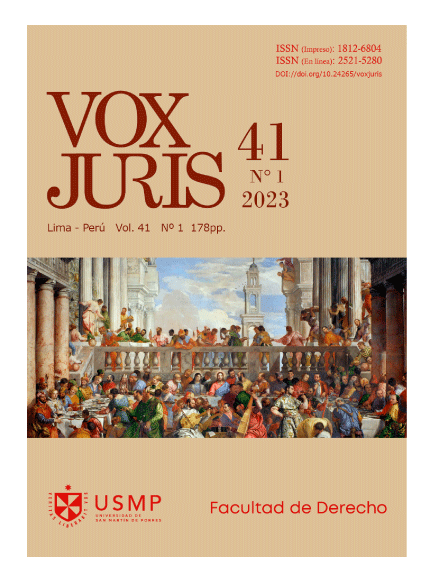A CRITICISM TO THE CONTENT CONFIGURATION OF THE RIGHT TODIGITAL DISCONNECTION IN PERÚ
Abstract
Despite the positive peruvian normative
intervention in the field of the right to digital disconnection regulated in the modality of remote work, and, in the new regulatory framework of telework, through the Decreto de Urgencia 127 2020, Decreto Supremo 004-2021-TR and of the Proyecto de Ley 5408/2020-CR, some deficiencies are noted, however, regarding the configuration of the content of the right in reference. In this scenario and from a critical perspective, the right to digital disconnection is studied with the aim of improving the devices, in sufficiency for the third and in clarity for the second. The result of the investigation formulates, within respect to Proyecto de Ley 5408/2020-CR, a guaranteed duty in charge of the employer aimed at ensuring the effective exercise of digital disconnection, while for Decreto Supremo 004-2021-TR it postulates a reasonable business use of such technological tools outside the working day, conciliating the extra-day business use of the NICTs for employment purposes and the duty to guarantee digital disconnection. In methodological terms, the research with a qualitative approach and theoretical method based on the systematic study of the issue, included that of the relevant doctrine to the case and that of the national regulations; then, once the study of the deficiencies in the national regulations was saturated, the adequacy and reconciliation proposals emerged, duly based on the data analyzed.
Downloads
Downloads
Published
Issue
Section
License
Copyright (c) 2022 Fátima Deyanira Arrivasplata Reyes

This work is licensed under a Creative Commons Attribution 4.0 International License.
Los autores que publican en esta revista están de acuerdo con los siguientes términos:
- Los autores conservan los derechos de autor y garantizan a la revista el derecho de ser la primera publicación del trabajo al igual que licenciado bajo una Creative Commons Attribution que permite a otros compartir el trabajo con un reconocimiento de la autoría del trabajo inicial en esta revista.


